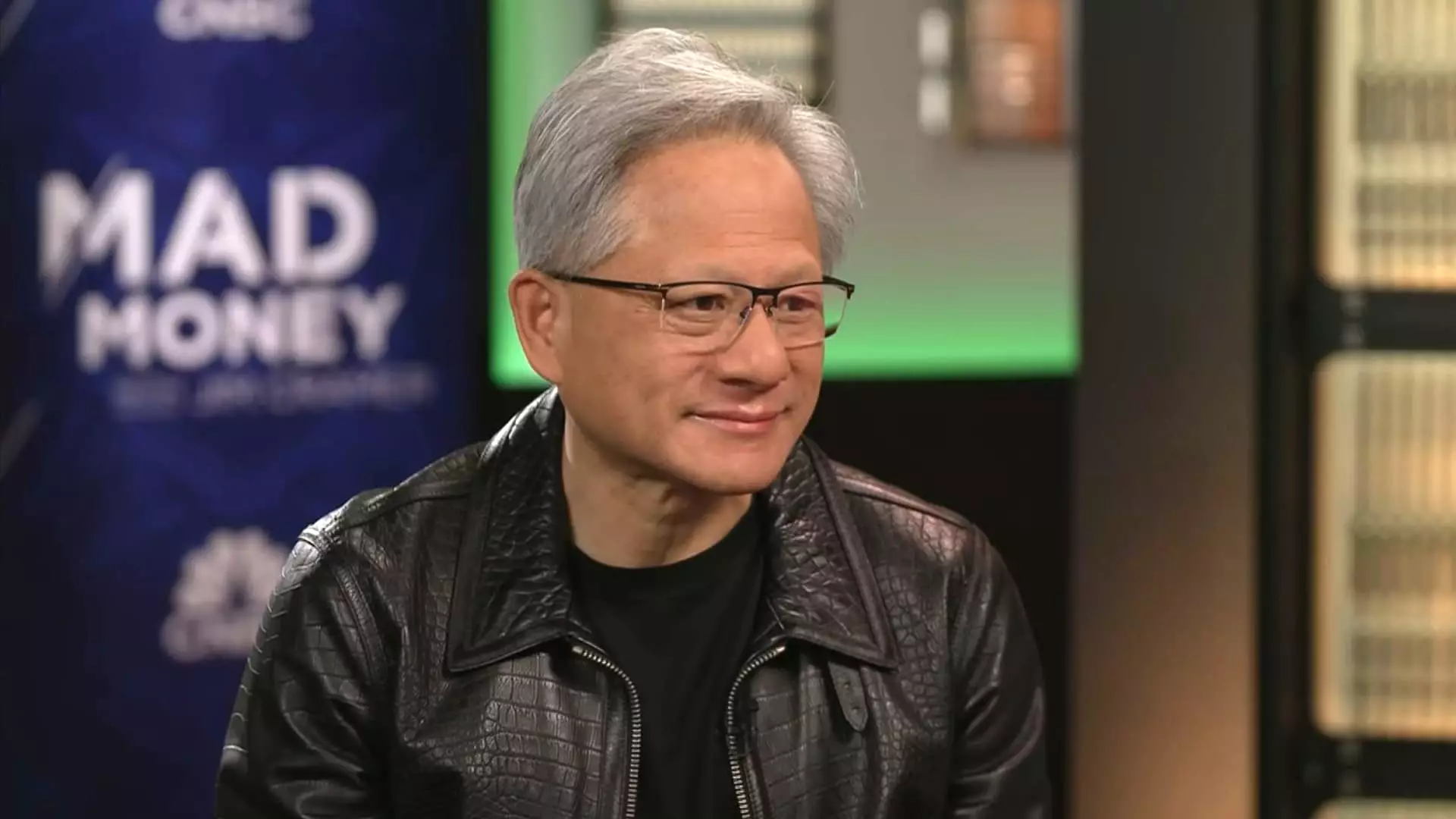In a climate rife with economic uncertainty, Nvidia CEO Jensen Huang has emerged as a beacon of optimism. His recent comments regarding the potential fallout from President Donald Trump’s tariffs reveal a perspective that often gets lost in the noise of trade wars. Huang asserts that the short-term impact of these tariffs will be minimal, primarily because the foundation on which Nvidia thrives is built on artificial intelligence (AI). The message here is clear; Nvidia is determined to continue its innovation trajectory regardless of external pressures, reinforcing the idea that the tech industry can be a buffer against political disturbances.
Rather than allowing potential tariffs to define Nvidia’s strategy, Huang emphasizes an ongoing commitment to fostering domestic manufacturing. The collaboration with partners like TSMC and Foxconn signals a return to American soil for crucial chip production, which may render Nvidia less vulnerable to the whims of international trade relations. This strategic pivot toward local manufacturing is also timely, given rising global tensions and the need for America to solidify its tech sovereignty.
The AI Revolution: A Game Changer
The unwavering confidence that Huang expresses about AI as “the operating system of every industry” is rooted in the transformative potential of this technology. He is not just envisioning incremental change; rather, he foresees a paradigm shift that positions AI at the core of economic growth. As industries from healthcare to automotive embrace AI, the demand for Nvidia’s innovative chips will undoubtedly swell.
Concerns surrounding competitors like DeepSeek should not be misconstrued as harbingers of doom for Nvidia. Instead, Huang’s rebuttal suggests a certain inevitability about Nvidia’s role in the AI ecosystem. Their chips are not merely a choice; they are essential components for advanced computational performance. When the narrative revolves around need over want, Nvidia’s place in the market appears more secure.
The Stock Market’s Short-Sightedness
Despite the promising projections, Nvidia’s stock has faced a staggering decline of over 20% from its peak earlier this year. Such volatility can be disheartening for investors. Still, this scenario reflects more about market psychology than the actual viability of Nvidia’s business model. The sell-off sparked by speculative fears regarding lower-cost infrastructures in AI suggests that investors are not always operating on sound fundamentals. Short-term drops in stock prices often offer savvy investors the chance to acquire assets at undervalued prices, particularly if those assets are backed by solid long-term growth prospects.
This volatility is amplified by external factors, including stringent export controls and competition from Chinese firms like Huawei. While Huang acknowledges revenue impacts from these restrictions, he asserts that Nvidia’s innovation pipeline remains robust. The company’s ability to pivot and strategize in a constantly changing geopolitical landscape reveals an inherent strength that should not be underestimated.
A Call for Balanced Perspectives
Lastly, the broader implications of Nvidia’s strategies extend beyond stock prices and tariffs; they beckon a more comprehensive dialogue about America’s innovation landscape. A liberal perspective would advocate for conditions that support tech companies like Nvidia as they navigate these challenges. It’s crucial to strike a balance between national security concerns and fostering an environment that encourages innovation.
The enthusiasm that Huang displays for building in America should inspire a collective effort to bolster the tech ecosystem domestically, allowing innovation to thrive amidst geopolitical uncertainty. Nvidia’s potential doesn’t solely rest on overcoming today’s hurdles—it lies in the proactive measures they are taking to lead America’s AI future.

